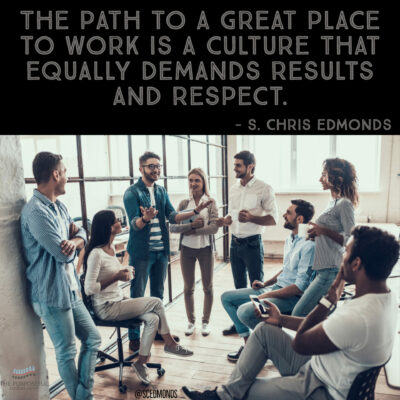If you’re trying to hire staff right now, you’re not having fun. The US Federal Reserve Bank in September estimated that the average time required to fill an open job rose from 20 days to 50 days over the previous four months.
And a new global McKinsey study found that 40% of respondents are somewhat likely to quit in the next three to six months. 18% of those said their intentions to quit ranged from likely to almost certain.
This study also revealed why so many employees are ready to walk out your door. The three driving factors were 1) employees didn’t feel valued by their organization (54% said this), 2) employees didn’t feel valued by their managers (stated by 52%), and 3) employees didn’t feel a sense of belonging at work (stated by 51%).
The pandemic has changed what people expect of their workplaces, colleagues, and bosses. Leaders don’t know how to meet those changing expectations. Leaders want to go back to “the way it was” because that’s the only way they know how to manage.
Employees have learned they have a voice and they have a choice. How can business leaders change their mindset and change their work cultures? By making respect as important as results.
In our new book, Good Comes First, co-author Mark Babbitt and I outline a proven approach that boosts engagement, service, and results and profits within 18 months of implementing our change process.
The process requires three things of leaders and team members.
First, it requires partnership. Leaders must invite team members to co-create an uncompromising work culture that treats everyone with respect in every interaction. By defining the behaviors required for respect and validation, leaders and team members can co-create an uncompromising culture.
Second, it requires role modeling. Leaders must be proactive champions of the new behaviors – modeling them, celebrating them, measuring them, coaching them, and mentoring others to embrace those behaviors.
Third, it requires accountability. Leaders must recognize and validate team members’ ideas, efforts, and contributions while re-directing behaviors that discount, demean, or dismiss people or efforts. Leaders can no longer tolerate disrespectful treatment by anyone.
Change is not easy – but “staying the old course” is not an option. Not today. Move forward, together with team members, to sustain a purposeful, positive, productive work culture.
This is episode ninety-eight of my Culture Leadership Charge video series. In these concise videos, I share the best practices for creating and sustaining a purposeful, positive, productive culture – where good comes first.
You’ll find my Culture Leadership Charge episodes, Good Comes First interviews, and more on my YouTube, iTunes, and Amazon Podcast channels. If you like what you learn, please subscribe.
Have you responded to this month’s culture leadership poll? Add your ratings to two questions. It’ll take less than a minute. Once you vote, click “results” to see the responses from around the globe.



